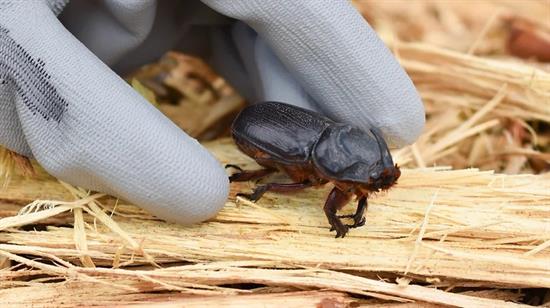(Washington, DC) – U.S. Representative Ed Case (HI-01), and U.S. Representative Jill Tokuda (HI-02) announced the re-introduction of their Hawai‘i Invasive Species Protection Act, a bill to require the U.S Department of Agriculture Animal and Plant Inspection Service (APHIS), in cooperation with other federal departments and the State of Hawai‘i, to conduct visual, x-ray and canine inspections, as appropriate, on person, baggage, cargo and any other article destined for direct movement to the State of Hawai‘i.
“Invasive species pose an especially grave threat to Hawaii’s ecosystems, natural resources and agricultural communities, in part due to Hawaii’s unique geography,” said Representative Case.
“Hawai‘i is the most isolated island chain and one of the most ecologically diverse places in the world. However, tragically, in large part due to invasive species, Hawai‘i has become the endangered species and extinction capital of the world.”
Case continued: “The Pacific Islands are home to 44% of the threatened and endangered species listed under the Endangered Species Act, and Hawai‘i currently has 578 species listed as endangered or threatened, more than any other state. Many of these species are critically endangered and face an extremely high risk of extinction in the wild. Although we will never know the true number of species that have gone extinct in Hawai‘i, in 2023 alone eight Hawaiian species were declared extinct.”
“Invasive species are also threats to way more than our endangered species. A prime example is the Coconut Rhinoceros Beetle (CRB), which has caused significant environmental and economic damage in Hawai‘i since its introduction. Native to Southeast Asia, the CRB’s introduction has gravely threatened Hawaii’s delicate ecosystems. The Hawai‘i Invasive Species Protection Act seeks to address this issue by requiring inspections not only of domestic travel—including persons, baggage, cargo, and other items—but also of international shipments, enhancing Hawai‘i's ability to prevent the further spread of invasive species like the CRB.”
“Invasive species are not the kind of visitors we want in Hawaiʻi. Our year-round growing climate has been both a blessing and a curse when it comes to invasive pests and diseases,” said Representative Tokuda. “On one hand, it is an opportunity to grow more of what we eat and decrease food insecurity in our islands. On the other, if all visitors to our islands do not go through the same screenings and inspections people leaving Hawaiʻi do, we will always be vulnerable to pest and disease that end up decimating our local agricultural industry.”
“The control, mitigation and eradication of pests and pathogens are the top concerns of Hawai‘i farmers and ranchers,” said Sharon Hurd, chairperson of the Hawai‘i Board of Agriculture.
“Protecting our islands from invasive species requires a multi-agency effort, including state and federal agencies, as well private sector partners. We greatly appreciate the congressional support for the Hawai‘i Invasive Species Protection Act which will provide essential resources in the battle against these serious threats to the state’s agriculture, environment and economy.”
“Our bill further requires APHIS to work with the State of Hawai‘i to develop and publish a list of the high-risk invasive species and agricultural materials for the State of Hawai‘i,” said Case. It pays for these inspections by increasing Agriculture Quarantine Inspection fees to cover the full cost of inspection.
“If we truly care about the threat that continued and escalating invasive species pose to one of the most invaluable and unique ecosystems on earth, in addition to our unique economy and way of life, then the stark reality is that this bill is what it will take. Again, it is not revolutionary when compared to other island countries, most notably New Zealand, that have not only recognized this threat but actually done something about it.”
Attachments:
· Case remarks on the bill here
· Copy of the bill here
· Picture of invasive species (courtesy State Department of Agriculture)
###

